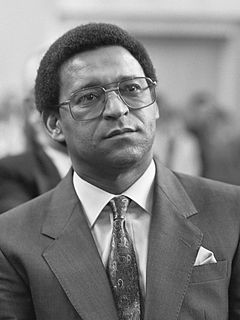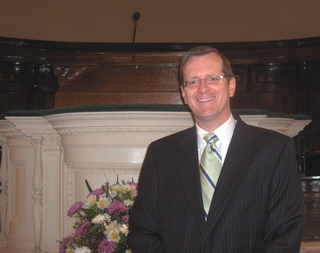A Quote by John Townsend
Our tendency is to be strong, self-sufficient, and dependent on our own willpower, but rather than try harder, we should reach out to the God who is all-powerful.
Related Quotes
One of the most effective ways to overcome anxiety is to try to shift the focus of attention away from self and toward others. When we succeed in this, we find that the scale of our own problems diminishes. This is not to say we should ignore our own needs altogether, but rather that we should try to remember others' needs alongside our own, no matter how pressing ours may be
The ultimate difference between God's wisdom and man's wisdom is how they relate to the glory of God's grace in Christ crucified. God's wisdom makes the glory of God's grace our supreme treasure. But man's wisdom delights in seeing himself as resourceful, self-sufficient, self determining, and not utterly dependent on God's free grace.
Trusting God's grace means trusting God's love for us rather than our love for God. [...] Therefore our prayers should consist mainly of rousing our awareness of God's love for us rather than trying to rouse God's awareness of our love for him, like the priests of Baal on Mount Carmel (1 Kings 18:26-29).
Do not become self-sufficient . Self-sufficienc y is Satan’s net where he catches men, like poor silly fish, and destroys them. Be not self-sufficient . The way to grow strong in Christ is to become weak in yourself. God pours no power into man’s heart till man’s power is all poured out. Live, then, daily, a life of dependence on the grace of God.
At least one indication of unbelief is the tendency to measure life's challenges against our own adequacy instead of God's promises. To enter our Sabbath rest, we must put an end to self-reliance - trusting in our own abilities to overcome difficulties, rise above challenges, escape tragedies, or achieve personal greatness.
Now we cannot...discover our failure to keep God's law except by trying our very hardest (and then failing). Unless we really try, whatever we say there will always be at the back of our minds the idea that if we try harder next time we shall succeed in being completely good. Thus, in one sense, the road back to God is a road of moral effort, of trying harder and harder. But in another sense it is not trying that is ever going tobring us home. All this trying leads up to the vital moment at which you turn to God and say, "You must do this. I can't.
It is when we create things for God's sake that our work most clearly promotes His glory, rather than threatening to compete with it. Thus the true purpose of art is the same as the true purpose of anything: it is not for ourselves or for our own self-expression, but for the service of others and the glory of God.


































